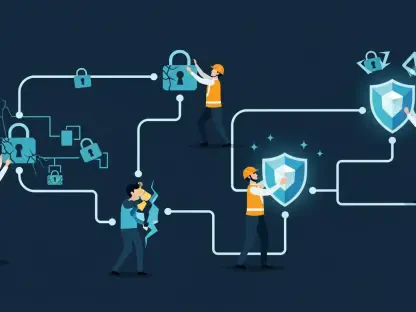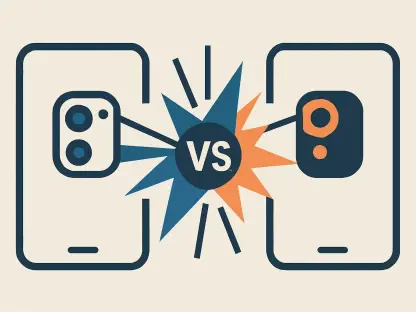In the evolving landscape of electric vehicles, partnerships between companies with distinct strengths can foster innovation and address specific challenges. A recent case involves a collaboration between Rivian, renowned for its sophisticated software capabilities, and the automotive giant Volkswagen, which is currently facing hurdles in its own software development. This alliance is centered on integrating Rivian’s advanced software framework into future Volkswagen electric models without adopting Rivian’s hardware. Such a strategy underscores the value of software in modern vehicle technology, enabling significant improvements in system integration, performance, and user experience, while maintaining distinct hardware identities.
Navigating Software Challenges in the EV Industry
The Advent of Advanced Software in VW EVs
Volkswagen has been proactive in incorporating cutting-edge technology to stay competitive in the electric vehicle market. Despite challenges in developing an effective software backbone, the company is determined to enhance its vehicles’ performance and functionality through strategic collaborations. The partnership with Rivian Volkswagen Group Technologies aims to infuse innovative software solutions into upcoming VW models. Starting with models expected in just two short years, such as the ID.1 and Golf 9, this collaboration will witness the deployment of Rivian’s modular and scalable software architecture within Volkswagen’s vehicles, marking a significant step forward in technological advancements.
Rivian’s contribution focuses on enhancing the software ecosystem that underpins vehicle operations. By employing a scalable zonal architecture, this strategic integration facilitates efficient communication between various vehicle systems. Such a design enhances the ability to update and manage software more effectively, offering drivers and manufacturers alike a more flexible and responsive platform. While some in the industry speculated that this partnership might extend into the hardware domain, both companies have clarified that the agreement is solely confined to software innovations. The reiteration of this separation helps to firmly delineate the boundaries in this high-profile partnership.
Hardware Independence through Strategic Cooperation
In the realm of electric vehicles, hardware platforms can significantly influence performance and innovation routes. Volkswagen’s ongoing emphasis on its Scalable Systems Platform (SSP) is a testament to its commitment to maintaining a distinct hardware identity. The SSP is notable for its modern 800-volt system, offering benefits like faster charging times compared to Rivian’s 400-volt R2 platform. This decision underscores Volkswagen’s strategy to independently evolve its hardware technologies while leveraging Rivian’s software prowess to optimize vehicle capabilities.
This concerted effort to prioritize software without altering the existing hardware landscape reflects a mature understanding of where each company excels. Volkswagen can harness Rivian’s expertise to overcome immediate software limitations while continuing to build upon its established hardware achievements. This cooperative balance ensures that both companies can focus resources on their respective strengths, thereby fostering a more robust and efficient evolution of electric vehicle technologies.
The Implications for Rivian’s Software Edge
Financial and Technological Dynamics
Rivian, a formidable player in the electric vehicle space, brings invaluable software insights to the collaboration, though it faces distinct financial and developmental challenges. The pursuit of the R2 platform has required substantial investment, adding financial pressure to the company’s initiatives. The alliance with Volkswagen offers an opportunity to embolden its software division without immediate financial entanglement in hardware production. By licensing software technologies in this partnership, Rivian can funnel resources toward overcoming broader obstacles while providing Volkswagen with state-of-the-art digital solutions.
This collaboration underlines the increasing importance of software in revolutionizing the automotive industry. Rivian’s integration into Volkswagen’s product line serves as a proof of concept for how sophisticated networking solutions can enhance traditional automotive engineering. The collaboration not only allows Rivian to validate its software solutions on a larger scale but also presents Volkswagen with the chance to optimize software capabilities without undertaking massive structural changes. This strategic alignment highlights a balanced convergence of needs and capabilities, illustrating an effective model for cross-industry cooperation.
Future Considerations and Strategic Avenues
As the landscape of electric vehicles becomes more interconnected, both Rivian and Volkswagen must continually adapt to evolving technological demands. The focus on software innovation is crucial in influencing future developments, particularly as regulatory frameworks and consumer expectations continue to shift toward sustainability and efficiency. The software framework spearheaded by Rivian could eventually serve as a model for other partnerships within the industry, showcasing how software-centric strategies can offer groundbreaking enhancements in vehicle design and functionality.
Looking ahead, the collaboration strikingly emphasizes the need for strategic adaptability and focused innovation. It also underscores an essential lesson for industry stakeholders: flexibility in technology exchange, coupled with a clear demarcation between different technological domains, paves the way for more fruitful partnerships. As these companies evolve, they set an example by demonstrating how clearly defined objectives, combined with strategic resource allocation, can successfully address the multifaceted challenges inherent in modern automotive development.
Partnering for Progress in Electric Vehicles
In the rapidly changing realm of electric vehicles, partnerships between companies with complementary strengths are crucial for driving innovation and tackling unique challenges. A notable example of such collaboration is the alliance between Rivian, acclaimed for its sophisticated software, and Volkswagen, a major player in the automotive industry currently encountering difficulties with its software development efforts. This partnership aims to incorporate Rivian’s advanced software architecture into Volkswagen’s future electric vehicle models, without the need to adopt Rivian’s hardware. This approach highlights the increasing importance of software in the automotive industry today. By leveraging Rivian’s software expertise, Volkswagen hopes to enhance the integration, performance, and user experience of its electric vehicles. This strategic move allows each brand to maintain its hardware identity while benefiting from cutting-edge software solutions, setting a new precedent in modern vehicle technology.









